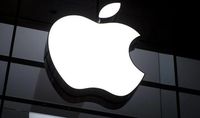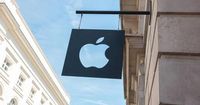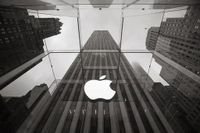France has imposed a hefty fine of €150 million on tech giant Apple due to violations of privacy rules concerning its iOS data collection policies. The French antitrust regulator, Autorité de la Concurrence, concluded that Apple’s implementation of its App Tracking Transparency (ATT) system does not comply with the stringent standards set by the General Data Protection Regulation (GDPR).
This decision follows a comprehensive investigation into how Apple collects data from iOS users and the impact of these practices on advertisers. According to Bloomberg, the regulator found that the ATT system forces developers to display an excessive number of consent requests, complicating the user experience and making it difficult for advertisers to effectively utilize their services.
In its Monday announcement, the antitrust authority stated that Apple's tracking system is neither "necessary" nor "proportionate." The investigation revealed that the implementation of ATT creates unequal conditions for different companies, which is a violation of antitrust laws. This scrutiny was prompted by a complaint from a group of advertisers who argued that changes made by Apple in 2021 severely impacted their revenues.
Advertisers reported that the limitations imposed by ATT reduced their ability to track user data effectively, leading to a significant decline in income. The antitrust authority is also examining whether Apple has applied less stringent rules to its own advertising services compared to those of other developers, a practice that could further exacerbate competition issues.
While the concept of data transparency is generally accepted, the regulator's findings suggest that Apple’s execution of the ATT system has raised serious concerns. The authority emphasized that the transparency system itself is not problematic; rather, it is the way it has been implemented that constitutes a breach of antitrust regulations.
This ruling may have broader implications beyond France, particularly in the United States, where there is growing scrutiny of major tech companies. Former U.S. President Donald Trump has previously warned that he might impose high tariffs in retaliation against sanctions targeting American tech giants. The French decision could potentially provoke similar reactions in the U.S. tech landscape.
Moreover, this fine serves as a warning to other tech companies about the importance of adhering to privacy standards and ensuring fair competition practices. With the increasing focus on data protection, regulators worldwide are likely to take a closer look at the practices of major technology firms.
As the tech industry continues to grapple with privacy concerns, this ruling by the French authorities underscores the need for companies to not only comply with regulations but also to consider the ethical implications of their data collection practices. The €150 million fine reflects the seriousness of Apple's violations in the realm of user data protection and fair competition.
This case could set a precedent for other regulators around the globe, influencing how privacy policies are developed and enforced in the technology sector. As the landscape evolves, companies will need to adapt to ensure they are meeting both legal requirements and consumer expectations regarding data privacy.
In conclusion, the €150 million fine against Apple by France's Autorité de la Concurrence highlights the ongoing tension between technology companies and regulatory bodies over data privacy. As scrutiny intensifies, it remains to be seen how Apple and other tech giants will adjust their practices to align with evolving standards and maintain trust with users and advertisers alike.



